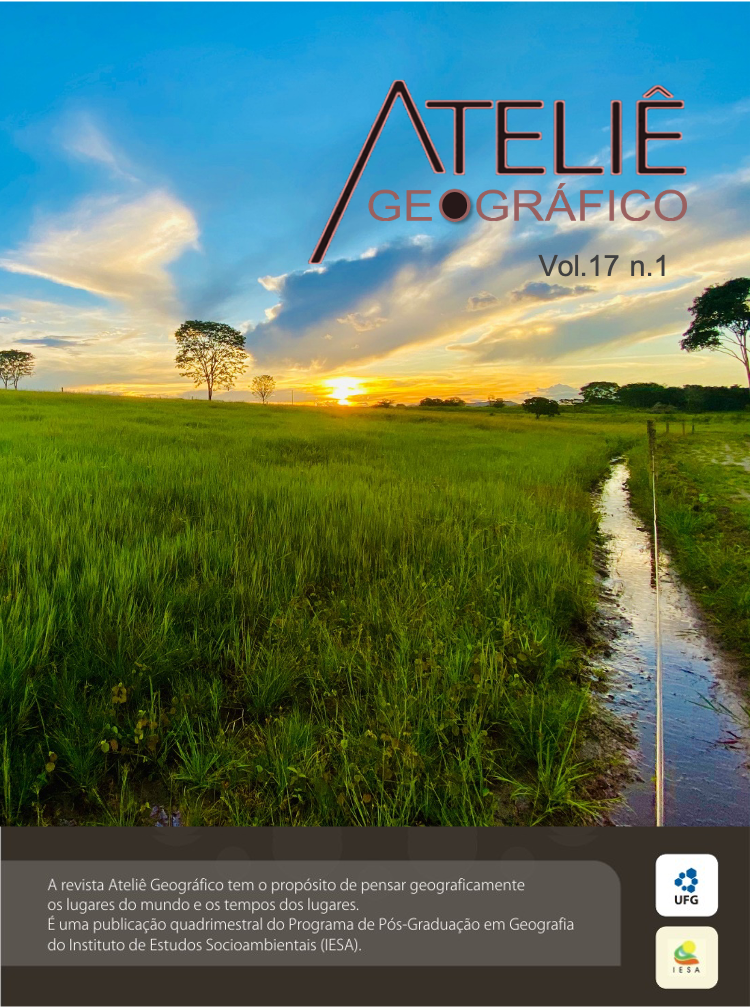A Região Integrada de Desenvolvimento do Distrito Federal e Entorno – RIDE/DF e sua (Des)Organização Social, Espacial e Econômica
DOI :
https://doi.org/10.5216/ag.v17i1.74605Résumé
No Brasil, há a presença das Regiões Integradas de Desenvolvimento Econômico (RIDEs) que são constituídas por mais de um Estado, e assim podem ser vistas como um conjunto heterogêneo no qual figuram grandes aglomerações de importância demográfica, econômica, social e política bastante diferenciada. O objetivo geral desse trabalho foi caracterizar a Região Integrada de Desenvolvimento do Distrito Federal e Entorno - RIDE/DF, considerando a composição dada pela Lei Complementar163/2018, nos âmbitos político, espacial e socioeconômico. Por meio de pesquisas bibliográfica e analítica, foi possível observar que os municípios que compõem a RIDE/DF se submeteram a uma urbanização desordenada que não foi causada pela industrialização e nem estava diretamente ligada a fatores vinculados a um desenvolvimento regional igualitário. A RIDE/DF ficou caracterizada por uma centralização de funções econômicas, das oportunidades de trabalho e segregação residencial, ocasionados em grande parte por ações iniciais do Estado, e que resultaram em diversos problemas, como o desemprego estrutural, déficit habitacional, violência urbana e desigualdade socioespacial, que afetam não só o DF, pois isso gera efeitos de transbordamentos para os demais municípios da RIDE/DF.
Palavras-chave:Políticas públicas regionais. Região integrada. RIDE/DF.
Téléchargements
Téléchargements
Publié-e
Comment citer
Numéro
Rubrique
Licence
Autores que publicam nesta revista concordam com os seguintes termos:- Autores mantém os direitos autorais e concedem à revista o direito de primeira publicação, com o trabalho simultaneamente licenciado sob a Licença Creative Commons Attribution que permite o compartilhamento do trabalho com reconhecimento da autoria e publicação inicial nesta revista.
- Os autores não serão remunerados pela publicação de trabalhos na Revista Ateliê Geográfico. Além disso, os conteúdos publicados são de inteira e exclusiva responsabilidade de seus autores, ainda que reservado aos editores o direito de proceder a ajustes textuais e de adequação às normas da publicação.
- Autores têm permissão e são estimulados a divulgar seu trabalho online (ex.: em repositórios institucionais ou na sua página pessoal), já que isso pode gerar alterações produtivas, bem como aumentar o impacto e a citação do trabalho publicado (Veja O Efeito do Acesso Livre).


